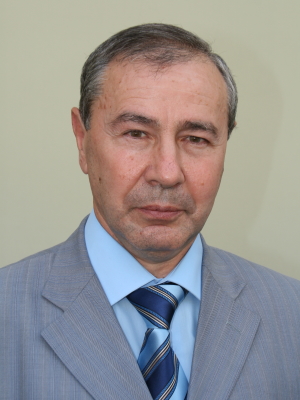Alexander F. Anufriev – Dr. Нab. in Psychology, Professor in the Department of Practical Psychology, Senior Research Fellow specializing in Legal Psychology. He is currently a professor at the Department of Labor Psychology and Psychological Consulting at the Institute of Pedagogy and Psychology of Moscow Pedagogical State University.
In 1972 he graduated from the Faculty of Philosophy of Lomonosov Moscow State University.
In 1978 he defended his Ph.D. thesis “Experimental study of the properties of the indicative basis of action in solving diagnostic problems” (Faculty of Psychology, Lomonosov Moscow State University). In 1994 he defended his doctoral thesis “Psychological diagnosis: Theoretical and methodological foundations” (Lomonosov Moscow State University, scientific consultant was N.F. Talyzina, academician of the Russian Academy of Education).
He specializes in the field of cognitive psychology and diagnostic thinking. He developed a new approach in scientific psychodiagnostics – the concept of solving cause-and-effect tasks, describing the process of establishing the causes of human behavior in difficult situations of life, professional, and educational activity.
Within the framework of the concept, a typology of psychodiagnostic tasks was developed, a technology for instrumental and computer modeling of cause-and-effect tasks was developed in order to study the psychological patterns of the course and formation of diagnostic thinking, new special diagnostic tools were proposed (schemes of psychological determination, psychodiagnostic tables, diagnostic algorithms).
Based on the study of the patterns of the course and formation of diagnostic thinking in solving cause-and-effectproblems, a unique developing expert system (with the elements of artificial intelligence) in the field of psychology was designed to assess the level of development and improvement of diagnostic competencies.
Scientific interests:
– psychodiagnostics, cognitive sciences, artificial intelligence;
– psychological patterns of the course, development and formation of diagnostic thinking;
– cognitive models of making a diagnostic decision in various types of diagnostics (psychological, pedagogical, medical, technical, etc.);
– VR technologies for modeling psychodiagnostic tasks;
– design of developing expert systems for making diagnostic decisions in the field of psychology (with the elements of AI);
– development of expert decision-making systems in the field of psychology (with the elements of AI) for assessing diagnostic competence, forming and developing diagnostic thinking of specialists performing a diagnostic function (psychologists, educational psychologists, teachers).
Author of 8 monographs devoted to the theoretical foundations of practical psychodiagnostics, the study of psychological patterns of the course, formation and development of diagnostic thinking, diagnostics and overcoming learning difficulties, case studies from the diagnostic practice of a psychologist.
Author of 12 textbooks for psychologists, educational psychologists, educators, and speech pathologists.
Author of unique training courses: “Modern psychodiagnostics: The concept of solving diagnostic problems”, “Training for solving diagnostic problems”, “Computer workshop for solving causal diagnostic problems”.
Under his supervision 10 PhD research works were completed and successfully defended in the directions General Psychology, Personality Psychology, History of Psychology, and Psychology of Education.
He is a member of the dissertation councils of Moscow Pedagogical State University in the directions General Pedagogy, History of Pedagogy and Education, and Social Psychology.











